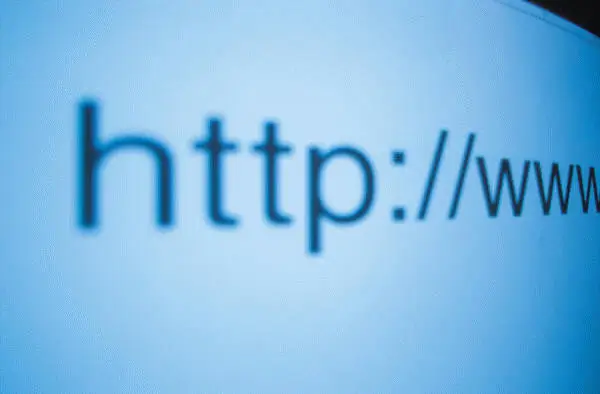
Choosing the Right Address
While a lot goes into designing and building an effective real estate website, it all starts with the address bar on your visitors’ browser windows. A URL or domain name can provide your visitors with a lot of information about your business—and not all of that information is flattering. Here’s what your URL says about you.
ClantonRealty.wordpress.com
You’re new, or on a budget, or both. Whatever the case may be, maintaining a subdomain makes your URL harder to remember and can cause you to look like an amateur, regardless of how polished your WordPress site looks and feels. Instead, you should limit yourself to one dot by redirecting your CMS-hosted site to a custom domain.
ClantonRealty.com/?p=2131
You’re either working with an amateur web designer, or you’re building a website on your own without much experience. Either way, you should be changing out default URL extensions like this one for a “pretty URL” (ClantonRealty.com/blog/best-restaurants-in-newport). They offer more benefits for both human users, who can find your blog page based on the keywords in your URL, and search engine bots, which can use this URL along with your page content to determine the site’s value.
ClantonRealty.com/index.html
Same as above. While the “index.html” extension is technologically necessary for designating to servers which of the pages within your site is the homepage, that doesn’t mean your visitors have to see that ugly extension. Instead, you should tell your designer to redirect traffic from “index.html” to your basic domain (ClantonRealty.com).
JoeClanton.com
You’re focusing on the wrong aspect of your real estate business. When people start looking for a Realtor, they usually search first by company, then by individual agent. More importantly, people aren’t searching for you by name—how could they, when they don’t know you yet? Instead, they’re looking for what you have to offer: apartment rentals in Boston, or homes for sale in Kansas City. These are the kinds of terms you should be using for your URL.
Finally, if you ever retire or move out of the area, you might want to sell your domain—and unless there’s another Joe Clanton out there looking for a real estate website, you’ll likely have a hard time finding a suitable buyer.
JoeClantonRealtor.com
This is a bit better than JoeClanton.com, as you’re attaching yourself to the REALTOR brand. On the other hand, the NAR limits URLs that use the term, so that you can only use “realtor” in conjunction with your exact business name—and again, you’ll be missing out on all those people searching based on other, more common descriptors.
JoeClanton@Hotmail.com
Okay, so it’s not a URL—but using a third-party email address for your professional contact information simply doesn’t look professional. (Plus, you might be mistaken for an 18-34 year old woman.) Instead, set up an address tied to your domain (joe@clantonrealty.com), then forward your messages to your personal email account.
BayAreaCondoRentals.com
It’s possible you occupy a very specific niche in the real estate space, serving customers looking to rent condominiums in the Bay Area. If so, great—this URL offers all the right descriptors. It’s also possible that you’re SEO obsessed, and figured using a very specific URL would boost you to the top of the rankings more quickly. But “Bay Area Condo Rentals” is far too long-tail a search term to garner much traffic. Instead, go with BayAreaRentals.com.
NewburgRE4U.com
You were either too focused on keeping your URL short, or you thought you were being cute. Either way, this URL is weak for a few reasons. First, “RE” won’t give you anywhere near the SEO benefit that “RealEstate” would. Second, mixing letters and numbers presents a hurdle to visitors when it comes to remembering URLs and passing them along to others. Ditto for replacing words with letters (e.g. “u” for “you”). Finally, you can be sure no one’s typing your URL directly into their address bar.
NewburgRealEstate.biz
You were either late to the party, low on cash, or too lazy/stubborn to think of something else, so you decided to get as close to your original target URL as possible. The problem is that your workarounds are negating the benefits of the descriptive terms you’re using. No one really wants to do biz with a .biz—it makes your site look spammy. The .org extension, though slightly better, was initially meant for nonprofits, and won’t give your site nearly the amount of prestige or professionalism as a top-level, .com domain.
Newburg-Real-Estate.org
Just like second-tier domains, dashes tend to undermine your credibility. They’re also hard to remember, and they guarantee you won’t get any type-in traffic. Plus, there’s the guy who beat you to NewburgRealEstate.com to think about. Instead of gaining traffic from a descriptive name, you may end up losing traffic by sending people to a competitor with a similar-but-better URL.
617Homes.com / MercerCountyRealEstate.com / NortheastPhillyHomes.com
You didn’t do your keyword research. URLs like these may be full of descriptive geographic keywords and phrases—but they’re not the ones people are typing into Google. People tend to stick with names of cities and towns as keywords; area codes and counties are often too broad, while specific quadrants of cities are too specific. Before you choose a descriptive URL, spend some time on Google AdWords and other keyword tools to see which terms will give you the most local search traffic.
NewburgHomes.com
Congratulations! Either you were rich, or you were first—or, you simply understood the potential value of a top-level domain name that’s short, straightforward, and makes use of the keywords your customers are searching on Google.
Remember: your URL isn’t the end-all, be-all. Rather, it’s just one of the many factors that contribute to a successful real estate website that draws visitors and converts them into customers. Still, if you’re not getting the results you want, and if your main URL exhibits one or more of the issues above, it may be time to make a change.














